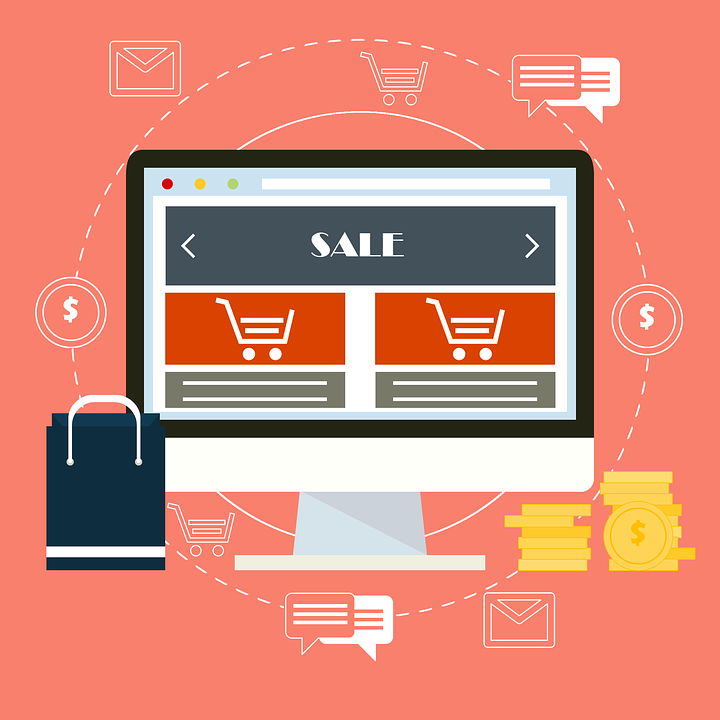Ecommerce, in simpler terms, refers to the trading of goods and services online in exchange for digital transfer of payment. Although eCommerce has become mainstream in the last decade, it dates back to the 1960s. Originally developed to replace mails and fax, it is now also replacing human intervention. From an English inventor connecting a modified TV to a computer processing transactions through a telephone line, eCommerce truly came into its own when Dan Kohn, ran a website called NetMarket to sell a Sting CD. The mode of payment used was a credit card protected by end-to-end encryption in 1994.
Shortly after, Amazon launched as an eCommerce platform for books followed by eBay, Paypal, Zappos and Victoria’s Secret. As eCommerce developed, the ways to conduct business also evolved, giving rise to many eCommerce development services to ensure seamless transactions. The traditional types of eCommerce models are as follows:
- Business to Consumer (B2C): Business to consumer is the most popular form of eCommerce. Here the consumer can interact directly with the seller.
- Business to Business (B2B): Business to Business refers to one business selling goods and services to another business. A perfect example of this would be the business conducted between retailers and wholesalers.
- Direct to Consumer (D2C): This is a fairly new model of business. This refers to the business directly coming into contact with the customer without going through wholesalers and retailers.
- Consumer to Consumer (C2C): Consumer to consumer refers to the business taking place between two consumers. The auction site eBay operates on this principle where two consumers can exchange refurbished or new goods at a lower price.
- Consumer to Business (C2B): Consumer to Business occurs when a consumer offers their services such as exposure, photographers, writers and so on, to a business organization.
In the growing financial ecosystem, businesses have developed a need for eCommerce websites that will allow consumers to reach out and purchase products. Ecommerce has a lot of benefits in the long run such as:
- Convenience: Purchasing products through the internet whether it is a retailer or through drop-shipping, is convenient. Using dropshipping software to sell your products allows you to use the eCommerce platform without having to pay for expensive inventory. In the new normal, when people are afraid to step outside of their homes, eCommerce has come as a godsend to consumers and sellers alike.
- Global Marketplace: Ecommerce opens a business up to a global marketplace. The business is no longer restricted to a specific geographical location and can attract customers from all over the world.
- Decreased expense: Since a physical store or warehouse is no longer necessary for a business to store its inventory, the business can save on expenses in the long run.
- Personalization: Ecommerce allows the business to understand its customers better through surveys and searches. This allows them to improve their products according to customer preferences.
Since not all businesses have the knowledge to launch their own sites, here is where companies offering eCommerce development services step in. Employing an eCommerce service to assist in the construction of the website allows businesses to achieve a global business reach, deliver satisfactory customer services, diminish time constraints and provide a personalized shopping experience.
Coming up with eCommerce development solutions, the services help the business to reach advanced scalability and security, hassle-free inventory management, user-friendly navigation of the website and also help them keep an eye on analytics to continuously improve their approach towards the potential customers. Ecommerce website development services continuously improve their marketing strategies which enables them to find new customers while retaining the existing customer base. These come with innovative approaches like mobile eCommerce development that makes your website more accessible. In addition to this, a payment gateway, theme development to entice customers with a fun website and application, and seamlessly crafted APIs can help your business connect effectively with the customers.
In addition to this, the eCommerce website development services include a periodical check on your website. This is vital for your business as maintenance of a website or application can become expensive in the long run. Drawing up a comprehensive contract with one of the best eCommerce development services ensures that you get round-the-clock maintenance and support and an upgrade to the latest eCommerce website to elevate your customer’s shopping experience.
The companies providing your business with eCommerce development solutions make sure that your business and your website stay up to date with the latest developments in the market. They use a systematic result-driven approach in eCommerce development to help you realise your vision in the future of your business.
One of the primary jobs of such eCommerce website development services is to ensure that your business does not fall prey to common mistakes committed in the domain of eCommerce. The mistakes that one can commit like slow site speed, a poor domain name, wrong platform, poor SEO strategy, unresponsive website/application can crush your potential clientele. Using a service to help monitor your website, fixing problems like site speed and switching your current platform for a better one ensures that your business reaches its target audience.
To continue to grow your website, it is advisable to invest in a few tools that will help you scale your business. The right eCommerce development services provide you with website tools, Marketing tools, Competitor analysis tools, business tools and analytics tools to help with the optimization of your website. The tools help you analyse your business as well as your competition and take necessary measures. With the help of business tools, you can take accountability for daily operations, logistics, and finances curbing unnecessary expenditure and increasing profits. With the help of analytic tools, you can estimate which approach works for your customers, and improve your sales.
The eCommerce development solutions provide improved visibility, hassle-free inventory management, and shopping experience tools integration scaling your business to a larger platform. Having easy access to these services can save you money and time by taking complete accountability of the website, optimising it to reach its full potential.
The rapid development of eCommerce has only confirmed the fact that the domain will continue to rise in the future. As per a report by Morgan Stanley, a financial expert, the eCommerce industry is expected to have a 1200% increase in the next five years, i.e 2026. As the industry grows, businesses will have to come up with new solutions to catch up with the current market. The use of artificial intelligence, bots, social media platforms to escalate the reach of eCommerce is set to bring a boom in the industry even further.
Although at the start, the eCommerce industry ran into logistic problems like effective returns and priority shipping, the businesses quickly found solutions to their problems. Now, with one-day delivery and hassle-free returns applied to even small scale products, the eCommerce sector is set to take the world by storm. The next 5 years will definitely see a notable decline in physical shops and warehouses, requiring businesses to explore eCommerce and come up with new ways to scale their business.
To keep up with the ever-changing financial landscape, businesses need to experiment and come up with innovative ideas to use eCommerce as an effective tool. An important step to implement would be to cater to the consumer emerging from tier-2 and tier-3 cities. The future of businesses is to make sure the future generation knows about their products and services. With the use of assisted sales, relatable products, and a strong offline-to-online transition model, businesses can easily use eCommerce to their advantage. Customised and targeted marketing is another way to curb window shopping and achieve a higher conversion rate when it comes to customers buying products online. Customised marketing along with a dedicated customer support system makes the consumer feel heard and they are more likely to purchase products catered to their specific tastes. eCommerce has a lot of untapped potential that can help your business reach new heights.






